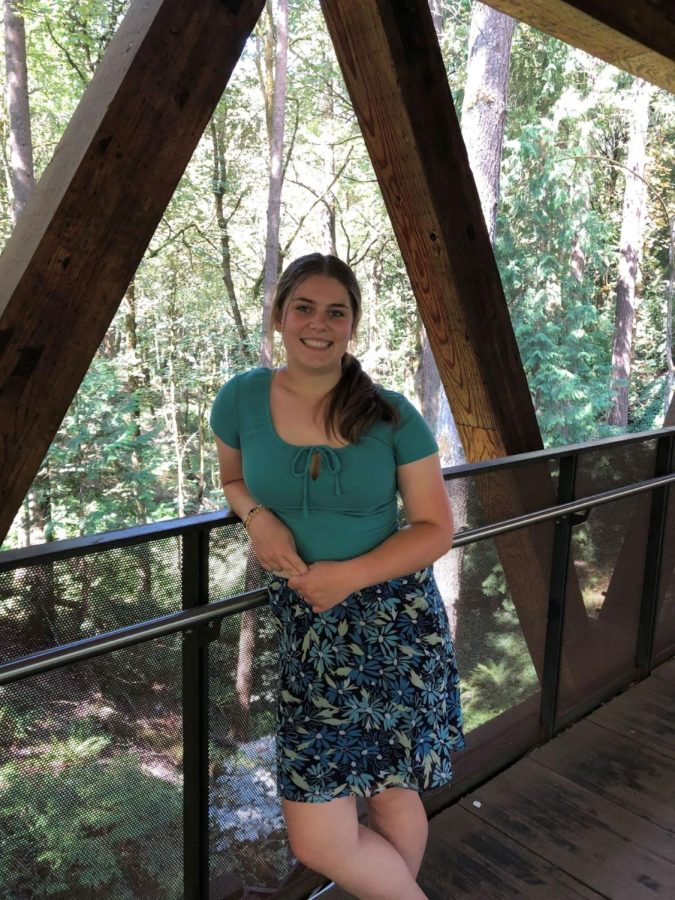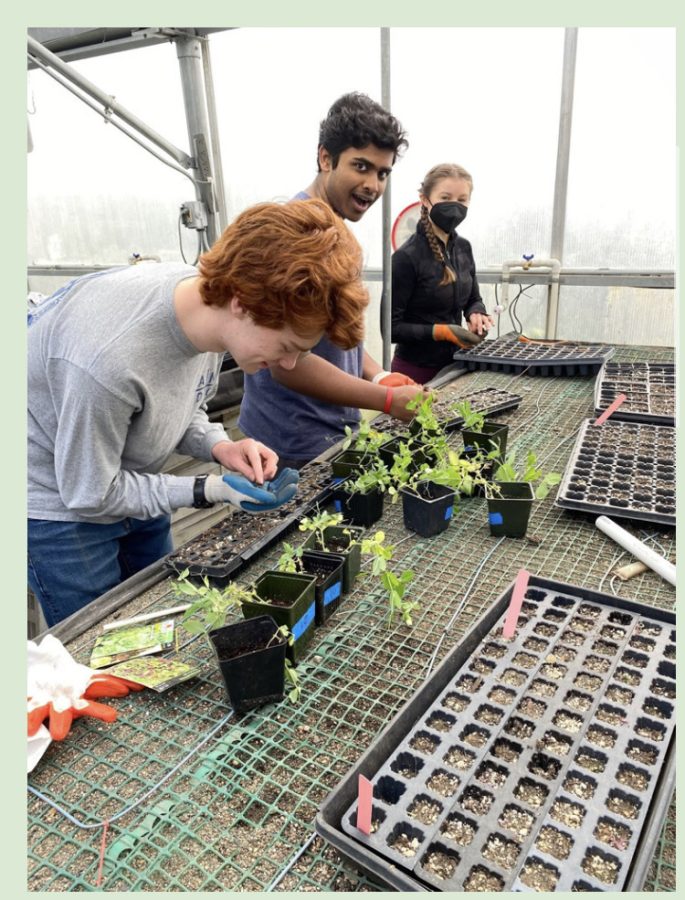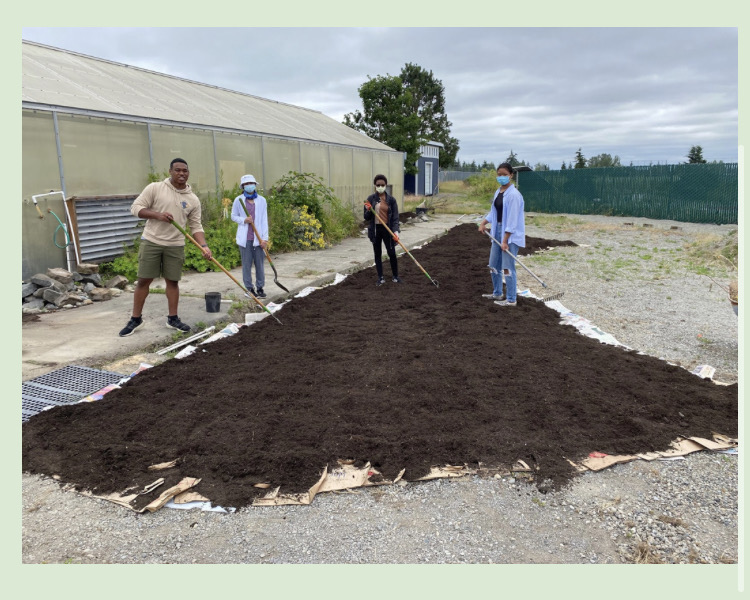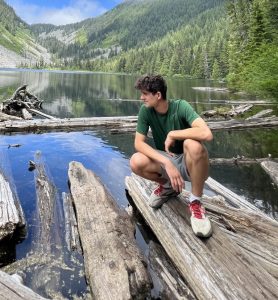Senior representative Bella Beha sheds light on sustainability

Since its founding in the fall of 2020, the Sustainability Representatives Club have become leading voices on campus for environmentalism, leading projects to improve Bellarmine’s green spaces and waste consumption. With their help Bellarmine has successfully eliminated single-use plastics from the cafeteria store, established two bee colonies, and remodeled the school greenhouse and Kateri Garden. They are currently working to reduce the school’s lunch waste, and further into the future they are even considering the implementation of electric car charging stations on campus. With all the success of the Sustainability reps, senior club leader Bella Beha looks back with gratitude at the three years she has spent as a member, sharing insight into her experience joining the club as well as the success and setbacks she has shared with members since.
“I’ve always had a passion for the environment, in middle school I was a member of my school’s green team, and I’ve always known I would be a biologist or biomedical engineer,” said Beha. Like her, most original members were passionate about sustainability, which helped to quickly integrate the club among both students and faculty. First founded in the fall of 2020 by Sam Abraham and Katin Kendrena, the club recruited representatives in each Formation Class by the end of the year, allowing members to present lessons and announcements directly during 5th period. Currently the club has a little over 150 members, with participation varying between each grade level and student.
Beha said, “One thing that’s great about our model is that everyone can participate as much or as little as they want, volunteer opportunities appear almost every weekend, so sports and other co-curriculars don’t discourage new members from joining.” The club also has an executive counsel run by students, teachers, Jesuits, and administration that coordinates funding and future goals, allowing both student and faculty voices to be heard when planning future projects.
The club has faced its share of setbacks as well as success, and Beha admits that the programs the club is involved in aren’t always successful the year they are implemented. One particular problem the club faces is getting the student body to follow the lunchroom disposal guidelines; despite separate bins for compost, landfill and recycling, most waste is thrown into the wrong bins. “I think outside of the Sustainability Representatives, most students do not think about where their waste should go, it’s frustrating because compost and recycling are two practices most students will say they want to see on campus.”
Despite the lack of student attention, student waste during lunch has gone down, as starting this year the cafeteria kitchen is no longer serving single use plastic cups, and the representatives are hoping to extend this policy school-wide, “all cups in the lunchroom are recyclable or compostable,” said Beha when discussing the new policy. “Single use plastics are still in use in the gym vending machines and concessions, but were actively talking with the athletic department in order to make the switch within the next few years.”
The representatives may also receive more attention from the student body in the near future, as they have plans to host this year’s justice summit, reinstate senior involvement in the greenhouse, and attract attention from local media. “The Justice Summit is going to be great; as a club we get total control of the event as we’re going to be focusing on student involvement and awareness,” said Beha while sharing plans for the school wide event.
Senior potting in the greenhouse, a previous class action that was halted during distance learning, is also expected to return in either the coming spring or the 2023-24 school year. While outreach to magazines such as Northwest Catholic, The News Tribune, and other forms on local and online media has not occurred yet, Beha and other members are confident the club represents the best values of a Jesuit education and Catholic living. “One of the sayings we always hear as students is ‘cura personalis,’ care for our common home, and that’s really at the center of our work as representatives. I think attention from the wider Catholic community would not only assure the school that what we’re doing is valuable and worth our time, but could also show Catholic schools across the country how to care for the environment,” said Beha.
Anyone interested in joining the Sustainability Representatives is encouraged to join. The club is always looking for new members, and a wide variety of service opportunities and events allows each student to participate when it best fits their schedule.
Beha encourages everyone to give the club a shot, and to bring their friends along with them. “I’ve really strengthened my bond with friends through this club, whether it’s picking up trash after a football game, potting plants in the greenhouse, or picking up trash on the beach this club will engage you and will teach you lessons about yourself and your fellow students. You can find us most Saturdays in the greenhouse, so don’t wait to get involved, be a part of a club that you will remember after high school, be part of a movement to address the most pressing issues facing our generation.”



Jonas is a senior who can’t wait for all the adventures and new experienced Journalism will bring. He is looking forward to conducting interviews, opinion...
